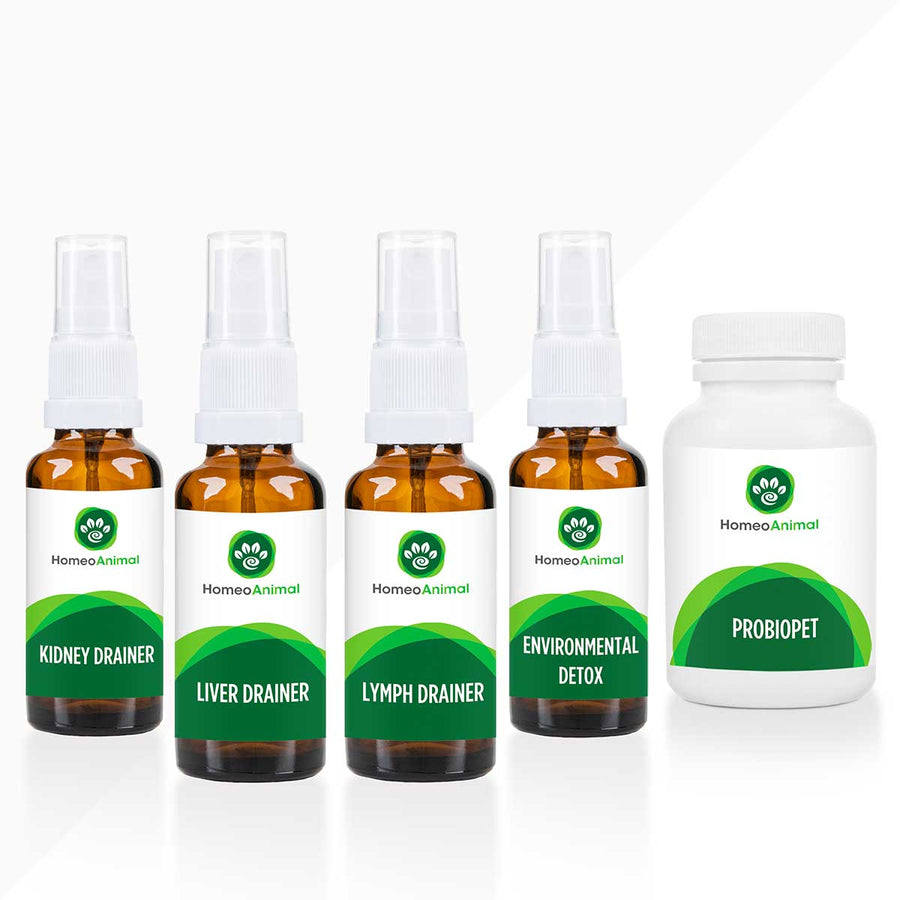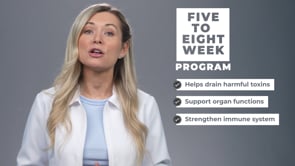5 Reasons Why Every Pet Should See An Animal Nutritionist
All responsible, loving pet parents take their companions to the vet for annual checkups or when they’re feeling under the weather. But what many dog and cat owners—not to mention all other parents of companion animals—don’t consider essential is consulting an animal nutritionist about their fur baby's pet food.
If you're still wondering how a pet nutritionist can help you achieve the quality of life you've always wanted for your puppy, kitten, or adult fur baby, then you've come to the right place. Make sure you read on to learn why this profession is more than just choosing food for animals.
Why Consulting a Pet Nutritionist Should be on Your Checklist—Fast

Of course, it’s imperative to see a veterinarian when it comes to your pet’s health, but for specific diet questions, a nutritionist is best. Your vet can give you general advice about the best food to feed your dog or cat, or perhaps when it comes to creating a diet checklist.
But the thing is that you can receive current and in-depth information from a nutritionist about different foods and how they can address certain wellness issues whether your dog or cat is still in his early years or already an adult. You can think of it as a constantly evolving job!
Just to emphasize, being a pet nutritionist combines a lot of things. It uses science and agricultural concepts, akin to those used by veterinarians, among other points of study, to give animals the lives they truly deserve.
Animal Nutrition is More Than Just Pet Food

“When I started this journey, I had no idea how extensive animal nutrition was going to be,” recounts Becky Mobley of Wild Kingdom Pet Supplies in Texas. “The countless hours I have spent reading and studying, along with all the training I've received by licensed veterinarians and experts in this field, has been an incredible journey, and one that is never over. New advances are always being made, and research is ever-evolving.”
Not Being Careful With Pet Nutrition Can Lead to Health Issues (A Lot of Them, Too)

You probably already know that poor nutrition can cause health issues in dogs and cats. But many pet parents don’t realize that their companion is lacking a certain food nutrient—or is allergic or sensitive to an ingredient—until symptoms appear or a diagnosis is made.
Needless to say, if your four-legged friend has developed a wellness condition, it’s a wonderful idea to see an animal nutritionist so you can customize a diet to fit his needs. But what if your pal is already in tip-top shape? The degree of awareness shouldn't stop there, too!
Try to keep him that way by getting him on a food plan that can prevent issues down the road. These can potentially affect his behavior, stage of development as well as overall quality of life. As a pet parent, you need to give dogs and cats (and other animals) constant care and attention to really give them the lives they are entitled to.
You Can Think of Animal Nutrition as the Combination of Science and Yummy Food for Pets

Nutrition for animals is complicated, so enlisting the help of a professional is the best way to keep cats, dogs and other pets in the pink. After all, Mobley says, “Animal nutritionists are versed in so many areas and facets, that your best bet will be to seek one out to help guide you in your journey to finding the right and best nutrition for your pet.”
Find out below why all pet parents should consider the advice of a nutritionist an essential part of their pet’s care:
1. They specialize in how nutrients affect animal lives.

Vets are essential in keeping our pets well and treating injury and disease. But when it comes to diet, a pet nutritionist has a deep knowledge of how certain nutrients (and combinations of them) can help support overall health, as well as assist in the healing or managing of countless conditions.
The practice considers care and quality of life as the top priorities.
“Pet nutritionists like myself have had extensive training in whole body health,” explains Mark DiMatteo of The Urban Dog in Michigan. “We have detailed knowledge of pet food ingredients: the good, the bad, right down to how a healthy microbiome improves and keeps your pet’s whole body healthy.”
Animal nutrition combines several agricultural-based jobs at once.
Emily Ellsworth of Pure Pet in Ohio adds, “It’s important to take advice from someone who understands not only the canine [or feline] body and how it works, but also has knowledge of where ingredients are derived from and what purpose they serve.” When it comes to kibble, she says, “You don’t get the full bio of the food by reading the bag.”
2. They’ll help you customize a strategy to fit your dog or cat’s needs—as well as yours.

If you’re afraid that pet nutritionists only recommend expensive, complicated eating approaches for felines and canines, don’t be. It’s the animal nutritionist’s job to help you implement a diet that’s good for your pal and fits your lifestyle.
We prepare different programs that companion animals can respond to.
Every animal needs a different balance of nutrients, depending on the species, breed, age, activity, health history, and so much more. If you don’t have the time or resources to feed your companion a homemade diet, that’s okay. A professional pet nutritionist will help you choose the right combination of kibble, wet food, and/or supplementation so your companion can get and stay in tiptop shape.
Animal nutrition is more than just science and biology—it's about trust and quality of life.
“A good specialist in animal nutrition will work within the limitations of the pet owner and modify a plan to not only meet the needs of the specific pet, but also that of the owner,” points out Johnna Devereaux of Fetch RI in Rhode Island.
“The best-laid nutrition plan does no good if it requires more from the pet owner than they are willing (or able) to do.” In short, a good animal nutrition expert takes on the problem head-on without deviating from the limits a pet parent is willing to subscribe to.
3. They have experience using diet to address health issues

Experts with good reputations will have seen your pet’s wellness issues (or something similar to them) before. That means, they have a feasible idea how to address them and have seen success stories with some of their clients.
The demand can be grueling because nutritional needs vary among a dog, cat and other pets.
What’s more, many nutritionists have expertise and certifications in specific areas (for instance, working with animals who have anxiety, cancer, kidney issues, etc.) that could really benefit your pal.
Still, it’s impossible for anyone to know everything, so the best in the field always make sure to continue learning and keep up-to-date with news and research; that’s how they serve their clients as best as they can.
When it comes to animal nutrition, "learn, study, follow, explore, advance, repeat" is the way to go.
“I have been studying pet nutrition for over 12 years, but I'm still studying, and still learning something new every day,” says Diana Farrar of Fifi & Fidos Pet Boutique and Holistic Nutrition Center.
“The field of nutrition is ever-changing and growing, and I will never know it all. I never call myself a ‘nutritionist,’ only a student of nutrition. What this means to my customers is that I'm on top of most everything happening in the field of pet nutrition, and their pets will benefit from that knowledge.”
4. Many work alongside vets for a holistic approach to your pet’s health.

Further, look for a nutritionist that works hand-in-hand with a vet, so your dog or cat’s health can be managed both medically and nutritionally. In fact, you may be able to find a nutritionist having veterinary school tutelage that does both! Remember, reaching out to a pet nutritionist is not just for dogs and cats. This also applies to other pets.
5. Seeing an animal nutritionist can save you money in the long run.

One big reason many people don’t consult with an animal nutritionist is that they are worried it will be too expensive. While it will cost you some money for an appointment, having a healthy pet can save you thousands in vet bills (not to mention, avoid pain and heartbreak) in the long run. After all, as they say, “An ounce of prevention is worth a pound of cure!”
A pet nutrition pro can help you give your pet his required nourishment straight away.
What’s more, it may only take one or two appointments to develop the required eating strategy for your pal, especially if they’re already generally healthy. Should an issue arise in the future, you can choose whether or not to see your nutritionist for more help.
Keep wellness issues in check while giving your pet the care and quality of life he deserves.
“It’s worth the money to talk to a nutritionist,” assures Donna Anderson of Petite Pet Inn & Spa in Virginia. “You will never know how much money you will save by feeding your pet correctly because [he or she] will NOT be going to the vet so often. It’s true for people as well; spend the money on prevention, and you will save money on all the doctors you WON'T have to see later.”
Make sure you inbox the right nutritionist for animals.

Now that we’ve convinced you to consult with an animal nutritionist for your beloved companion (it’s a great idea, we promise!), the next step is to find the right professional for you.
Finding the right pet nutrition pro for your team
The next article in our pet nutrition series will help you find an animal nutritionist near you whose philosophies align with your own. From asking the right questions to looking for red flags, this guide will assist you in pinpointing the perfect professional to address your pet’s health needs in a way that works for you.







We are happy to be a valuable asset to you, Lynne ! Don’t hesitate to reach out :)
Unfortunately, when you live in a Rural area we do not have a pet nutritionist available. I detest going to a Vet at all because of they promote medications and shots that have serious side effects. I’m thankful for your website because we have ordered before and you offer valuable information.
Leave a comment